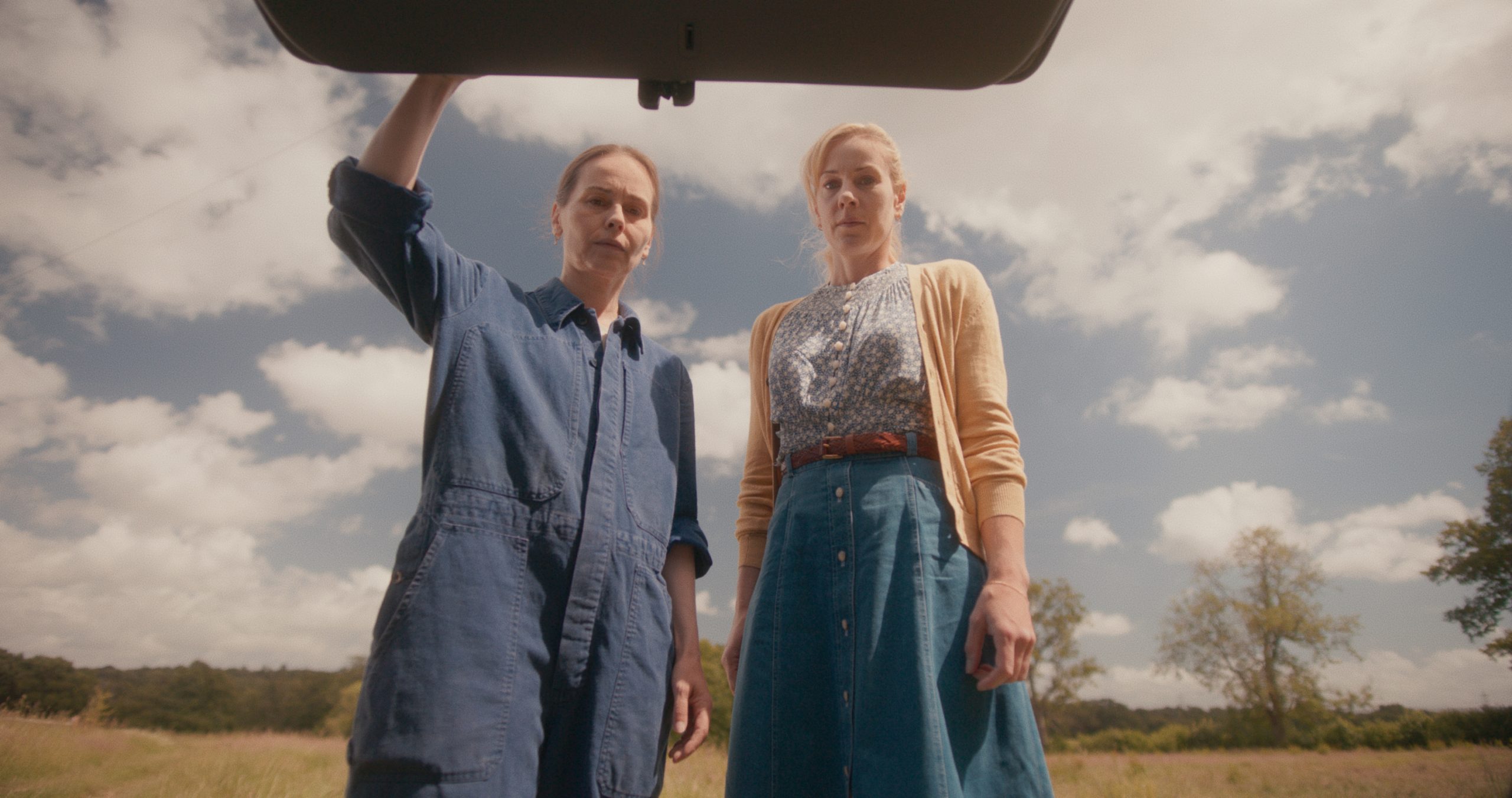 A middle-aged man sits quietly on his balcony, eyes closed, soaking up the sun. Two teenagers sing The Corrs’ Breathless into their phones. Skaters gather on a frozen canal. Whistles, bells and drums form the throbbing heartbeat of a climate change protest. Images of normal, every day life are what we see in this Steve McQueen documentary. But the stories we are told – and how they are linked to those images – are a different matter.
A middle-aged man sits quietly on his balcony, eyes closed, soaking up the sun. Two teenagers sing The Corrs’ Breathless into their phones. Skaters gather on a frozen canal. Whistles, bells and drums form the throbbing heartbeat of a climate change protest. Images of normal, every day life are what we see in this Steve McQueen documentary. But the stories we are told – and how they are linked to those images – are a different matter.
Based on Bianca Stigter’s book, Atlas of an Occupied City (Amsterdam 1940 – 1945), McQueen’s film offers up an almost street-by-street account of life under Nazi occupation in the capital of the Netherlands. It is thorough and almost unemotional in its approach. Almost. Because although Melanie Hyams’ voiceover is delivered factually and without hysterics, McQueen uses pauses, contemporary imagery and an ominous sounding score to weave together his retelling of trauma. Occupied City, in some senses, asks us if we’ve learned anything. Or if the history that is trapped in whispers and ghosts within the red and brown brick is doomed to repeat itself.
Much has been made of the film’s 4 hour and 6 minutes run time. Perhaps occupation should be a more palatable two hours or less. If you are genuinely interested in understanding how our past is so deeply connected to our present, the length will not bother you. Instead, you’ll be enraptured by its rigour. At times, it can be difficult to comprehend the numbers and scale being relayed. At this house, a family of six all died by suicide; in this street, 30 resistance fighters were shot; in this canal, one body was tossed; at this corner, hundreds of Jews were deported. But McQueen never allows you to become apathetic about these numbers, despite the fact that you’ll visit over one hundred addresses during the course of the film. More often than not, the twinkling city lights or scenes of crowded bars strike you with their brutish contrast to the horrors being narrated.
The film spans the initial Nazi invasion in 1940 and subsequent life under the NSB (the collaborationist Dutch Nazi party) through to the “hunger winter” of 1944 to eventual liberation in 1945. The Netherlands had hoped, initially, to remain neutral as they had in World War One. But it was not to be. The gallant tales of resistance, which pepper this documentary, are fascinating. So many individuals and family units risked their lives in order to deliver messages, shelter those on deportation lists and to cause just enough chaos to slow the efficiency of the Nazi killing machine down. In fact, it is these stories, one woman remarks whilst giving a speech at a memorial to dead Jews, that she hopes will keep young people interested in the past.
And there are so many “accidental memorials” in this film. Apartment blocks that betray no sign of their past; empty spaces where great acts of heroism took place; shiny, glossy buildings that have stamped out any signs of trauma. That’s what makes Occupied City so absorbing. History is everywhere. Yet, people go about their everyday perhaps without even realising that it is so.
 But McQueen isn’t just interested in the history of his adopted city. He cares about the present (and how that is linked to everything that has gone before). We are shown images of anti-lockdown protests broken up by mounted police who eventually resort to water cannons. We see a city council official apologise for the Dutch involvement in the slave trade. We see anti-fascist demos and climate change protests. All taking place where marches and demos and round ups and executions once did.
But McQueen isn’t just interested in the history of his adopted city. He cares about the present (and how that is linked to everything that has gone before). We are shown images of anti-lockdown protests broken up by mounted police who eventually resort to water cannons. We see a city council official apologise for the Dutch involvement in the slave trade. We see anti-fascist demos and climate change protests. All taking place where marches and demos and round ups and executions once did.
There are some gorgeous “floating” shots through the city, where the camera loops around in a disorientating but interesting manner. We are taken through gilded city halls, along tramlines, through canals and busy city streets. There’s a rhythm to the every day that is palpable. Sombre strings pulse alongside these images, giving us a pause from the mapping out of trauma. Glimpses of ordinary life seemingly unaware that it is leaden with history.
Occupied City ends with a tram journey and an observation that 75% of deportees from Amsterdam did not return. This is neatly laid over signs for a contemporary support stop for Ukrainian refugees. And then there is a small boy preparing for his Bar Mitzvah, his loving family looking on with joy at this important religious step. It’s the most direct message from this documentary – that despite the horrors of the occupation, there is still hope; still a future.
Occupied City is in UK and Irish cinemas from February 9.
- Six of the Best: Not Quite Christmas - December 12, 2024
- Glasgow Film Festival 2025 Announces Country Focus, Special Events and UK Wide Screenings - December 11, 2024
- Armand – Review - November 4, 2024




